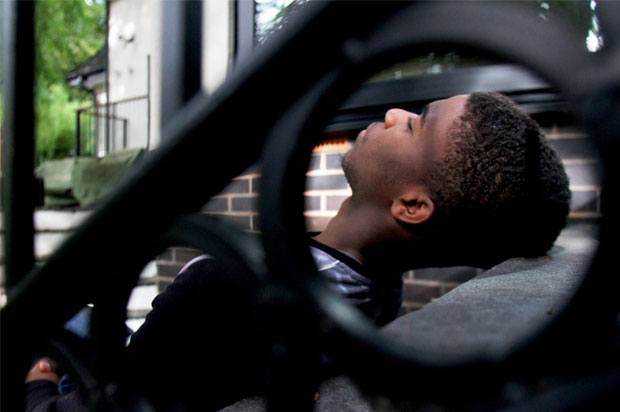What is toxic masculinity? Why ‘man up’ is problematic
Society has taught men that talking about their emotions and being vulnerable is wrong. Apparently the epitome of manhood is how many kegs you can take down or how loudly you can burp afterwards. Well we call bullshit. Writer Michael Handrick spoke to CALM to ask what is toxic masculinity and find out why being told to ‘man up’ is dangerous.

What is toxic masculinity?
The term toxic masculinity describes a range of negative ‘masculine’ behaviours arising from the traditional masculinity ideology: what a man should be and how a man should act. This covers a range of issues such as suppressing emotions and a lack of openness about mental health. Over time this can get progressively worse, leading to a range of mental and physical problems. These include anxiety, depression, stress, aggression and violence; or turning to alcohol or drugs to try block out feelings.
To find out more about toxic masculinity and binge-drinking, click here.
Toxic masculinity and mental health
CALM, a charity dedicated to preventing male suicide, reports that 84% of men don’t open up about their feelings and about 2/3 of 18 – 24 year olds hide their true emotions, which has a direct correlation to being told throughout life that that is what a man is supposed to do.
Here are some startling facts:
- Between 2016 and 2018 the male suicide rate increased by 8.2%. The rate has mildly decreased in the years since but these are still staggering statistics.
- Three out of every four suicides are men.
- Across the globe a man takes his own life every minute of every day.
- The National Institute of Mental Health states that at least 6 million men suffer from depressive disorders.
One thing to take from these stats is that you are not alone in what you’re feeling. Whatever you’re struggling with, help is readily available. The concept of toxic masculinity directly opposes this view, and that is why it has been coined ‘toxic’. In reality, by opening up we can start to change attitudes and perceptions about ‘acceptable’ masculine norms, and avoid this destructive trend.
‘Man up’ meaning and why it’s problematic
Didn’t have sex on the first date? Man up.
Struggling at school or work? Man up.
Upset your relationship ended? Man up.
Bite your tongue, bottle it up, and carry on. The conditioned ‘masculine’ ideal has taught men that the expression of their feelings and even leaning on others during hard times are not ‘masculine’ traits. Because feelings are for the weak, right? Wrong. The ‘man up’ meaning is just completely and utterly wrong.
From a young age we [men] are taught that crying, talking about feelings or showing emotions is equated to weakness. Do you remember being told to be a ‘big boy’ and not to cry? This causes the belief that expressing emotion is inherently wrong. According to society we have to deal with problems alone, and be ‘tough’. We are quite literally never given the option or tools for dealing with emotions, which boys and men carry through to adulthood.
There is no one way to be a man
The ‘man up’ culture symbolises a stereotype of men being the provider, the hunter, and the ‘strong’ one. Basically just adhering to bullshit gender roles. Not living up to this image could result in criticism and mockery for not being ‘a real man’. Despite the great progress made in breaking down stereotypes, there is still a long way to go. The myth of ‘man’ is very much alive and kicking, resulting in many men struggling to deal with the problems in their lives.
‘Man up’ is a toxic version of masculinity, another way of telling men that they are essentially nothing more than working-machines who have to take care of everyone but themselves.
At times when men genuinely try to talk to someone about their emotions or stress, ‘man up’ is used as a way to humiliate them for daring to open up.
How can we stop the ‘man up’ attitude?
We need to see expressing our emotions and seeking help as a sign of strength. By identifying and acknowledging that you are struggling you can begin to grow as a person. Taking the step to recognise a problem and seeking help to overcome it is strength itself. It may be one of the hardest steps you take, but it will be so worth it in the end.
You could:
- See your GP
- Contact helplines set up specifically for men
- Write down your feelings
- Talk to someone you trust.
- Tell us What Men Need to open up and not ‘man up’
Take baby steps until you reach a point where confiding in a friend or asking for help is natural instead of a hindrance. We also recommend listening to Justin Baldoni’s podcast ‘Man enough’ as well as following his movement which aims to break down the structures of toxic masculinity.
How to help a friend struggling with their masculinity
If one of your friends is struggling, take the step to show you’re there to listen. Making them aware that they can come to you can make all the difference. If we create an open and safe space to support each other, soon we’ll start to be more comfortable expressing ourselves and seeking help. As well as changing the view of how men should be.
Read more about supporting someone with a mental health problem here.
Whether you’re a defender in football, a ballet dancer, in love with a man, or a woman, or both – the only way to be a man is your way. Not the way society says. As humans we need to communicate, express and feel. It’s literally what humans do.
Our emotions need to be acknowledged and addressed. It’s okay to feel sad. It’s okay to cry; in fact it’s proven to release endorphins. It’s okay to talk. You’re not just a man; you’re also a human. For what it’s worth, you’re not weak either, you’re human. Forget ‘manning up’ and try opening up for once.
Next Steps
- Our Crisis Messenger provides free, 24/7 crisis support across the UK. If you’re aged 25 or under, you can text THEMIX to 85258
- CALM is dedicated to preventing male suicide. Call their national helpline for free on 0800 58 58 58, 5pm-midnight, or visit their webchat service .
- Being Mankind is a project creating conversations about the unique issues that men and boys face in the 21st Century.
- Chat about this subject on our Discussion Boards.
By Michael Handrick
Updated on 23-Oct-2021
No featured article














